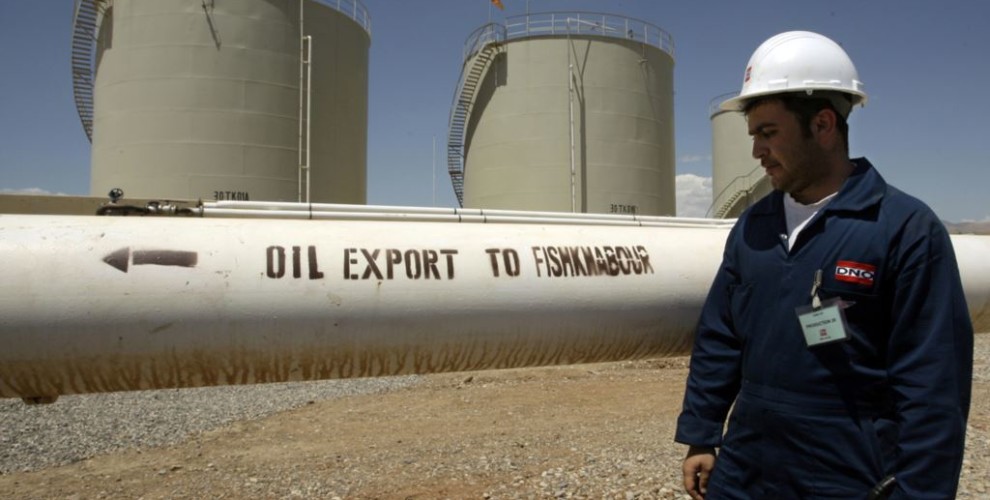The economic aspect of the invasion in Southern Kurdistan
With Southern Kurdistan losing control of the oil fields, the largest source of income, widespread economic crises may emerge soon.
With Southern Kurdistan losing control of the oil fields, the largest source of income, widespread economic crises may emerge soon.

The Iraqi army and the Hashd al-Shaabi forces used the September 25 referendum as an excuse and took control of various “disputed territories” starting with Kirkuk on October 16. What will affect Southern Kurdistan the most regarding the areas taken over is the income generated from the oil that is now lost. Due to the oil-rich regions lost since October 16, the Southern Kurdistan administration has fallen behind the oil sales, done illegally from 1991 to 2003 and then exported officially from 2003 onwards.
After the insurgencies in Qaladize and Rania in Southern Kurdistan in 1991, most of the Southern Kurdistan territories were liberated from the Saddam regime. KDP and PUK were not in the country at the time, but they returned to Southern Kurdistan and took power.
There were oil wells in many villages and districts in the Shiveshok region near Taktak in the liberated areas. The 300.000 barrels of crude oil extracted from these oil wells taken over by the KDP and PUK were sold in tankers illegally.
That continued until ISIS started invading Shengal and areas near Kirkuk in 2014.
KDP HAD CONTROL OF THE WELLS
After ISIS entered Shengal, Kirkuk, Zumar and Rabia in 2014 and the Iraqi government withdrew from the region, and oil-rich areas Zumar, Bayhesen, Havane, Babagurgur, Cembur and Xebaz also came under control of the regional government.
Among the oil-rich areas taken under control, Bayhesen and Havane were the ones where the most crude oil was extracted. 560.000 barrels of crude oil was extracted from the oil wells in these two areas alone. KDP took control of both of these two richest areas. With this, the daily sale increased from 300.000 barrels to 800.000 barres until 2014.
DAILY OIL INCOME WAS 28 MILLION DOLLARS
Right now, the barrel price of oil is 55 dollars in world markets. According to oil experts, the cost of extracting and transporting oil and other costs come up to some 20 dollars. So, after expenses, the income from each barrel of oil is 35 dollars. After expenses, 800.000 barrels of oil comes to 28 million dollars every day. That means, before October 16, approximately 28 million dollars of income from oil came into Southern Kurdistan daily.
The oil obtained from Southern Kurdistan and the income generated through them were known by Prime Minister Nechirvan Barzani and Aşiti Hewrami.
“60% OF OIL WELLS LOST”
Sulaymaniyah Natural Resources and Energy Committee Chairperson Ğalip Mıhemmed spoke about the lost wells, the drop in exported oil and the economic loss that will entail and said the following: “The Southern Kurdistan Regional Government has lost 60% of the oil wells they controlled since October 16. The confiscated areas aren’t just functioning wells, but also untapped reserves.
There were 535 oil wells in the areas that have been lost.
During this process, the exported oil has dropped from 800.000 to 200.000 barrels a day. This is even less than the oil sold illegally in 1991. With income from 200.000 barrels, the Regional Administration is looking at serious economic crises.”